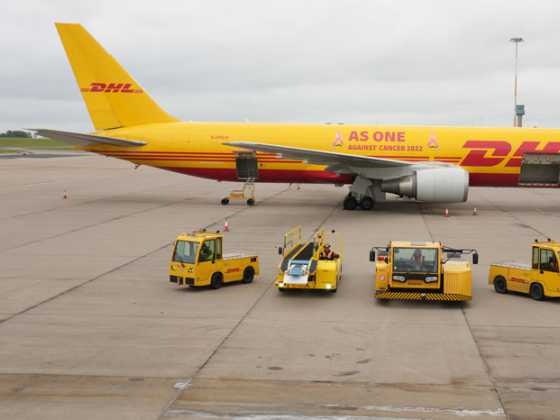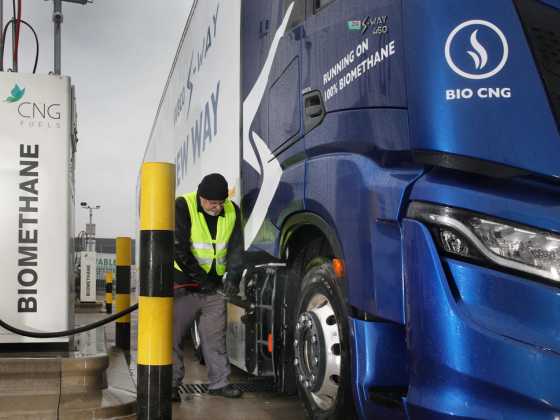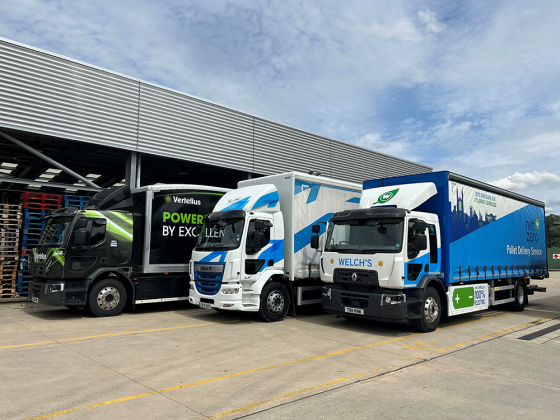What’s on the cards?
Better control over fuel spend and lower prices are just some of the benefits organisations can expect from using fuel cards, writes Jakes de Kock of the Fuelcard Company
 Fuel cards are, simply put, credit cards for use when buying fuel. Companies that run vehicle fleets – taxis, delivery vans, HGVs, etc – issue them to their drivers for three traditional reasons: to control and monitor fuel spending, to easily reclaim VAT and to gain access to the attractive lower prices only available under such schemes.
Fuel cards are, simply put, credit cards for use when buying fuel. Companies that run vehicle fleets – taxis, delivery vans, HGVs, etc – issue them to their drivers for three traditional reasons: to control and monitor fuel spending, to easily reclaim VAT and to gain access to the attractive lower prices only available under such schemes.
Fuel card holders can save up to 10 pence per litre on the national average diesel price, depending on which card they have. Such economies quickly mount up and can make a real difference to the bottom line of companies with substantial vehicle fleets.
For example, if an organisation currently spending £350 a month on fuel for each vehicle acquired fuel cards and achieved an average saving of 6p a litre, each lorry, van or car would cost £21 less per month to run. Over 12 months, this makes for a saving of £252. An organisation with a 10-strong fleet would retain £2,520 per annum, while a company of 30 vehicles would be a highly impressive £7,560 better off. Fleets of one hundred vehicles would cut their fuel spend by a hefty £25,200 across the year.
Better control
Although fuel cards deliver immediate savings at the pump, the real benefit comes from the increased control managers have over fuel usage and therefore spend, which can lead to substantial long-term savings. Businesses are able to monitor individual drivers’ usage, as well as that for the entire fleet, providing managers with a wealth of information. This can help identify areas where savings can be made, such as routing, or training individuals to adopt a more fuel efficient driving style – both of which also have a positive environmental impact.
Each fuel producer issues its own cards. The Fuelcard Company offers customers a choice of more than ten brands and options include Shell, Esso, Texaco and the company’s sister company, Keyfuels, with a network of 1,300 discounted fuel sites around the country.
A credible operator will make it a priority to get the right card to the right customer at the right time. With this is mind, it is vital that clients do not simply accept a casual recommendation, but task card issuers with compiling in-depth reports that justify quite how the card they are recommending will meet their needs.
This should involve a meticulous analysis of the client company’s area of operations using geolocation technology – going out as far as 50 miles in some cases. All options need to be assessed for a balanced advice on what will give maximised benefits – a good start is to visit an online resource such as www.comparefuelcards.co.uk
Added value
Beyond this, card providers are, increasingly, adding consultancy and access to preferential rates on other services and products. These include finance services, roadside recovery, news and weather feeds, vehicle maintenance, customer loyalty benefits/membership and fleet management technology.
Use of this is growing in popularity and a good example of rising uptake by card providers is vehicle tracking hardware; systems that give fleet managers real-time information on the activities of their drivers, including journey times, driving speeds and fuel consumption.
Downloadable speed analysis reports show how a vehicle has been driven in comparison to the rest of the fleet and idling reports show when it is stationary but the engine has been left running. Again, this allows action to be taken when fuel is being wasted, for both economic and ecological benefits.
Such opportunities to cut usage and increase operating efficiency are not merely driven by the need to address rising fuel prices; there is a rising feeling that businesses need to be run leaner and more sustainably before good practice is imposed on them.
Going greener
With this in mind, one of the biggest challenges for fleet operators is establishing green credentials. In a recent survey by The Fuelcard Company it was revealed that 57 per cent of our customers were interested in environmental products and services, while 24 per cent put a priority on carbon offsetting and making their fleets more eco-friendly.
As a result, we have introduced EcoPoint, in partnership with the Yorkshire Dales Millennium Trust (YMDT), a eco-friendly upgrade that helps customers offset their carbon footprint and enjoy greener driving, for less than 2p extra per day.
It coincides with the 2010 budget supporting carbon reducing schemes within the transport sector. Every EcoPoint purchase contributes to an extensive scheme by YMDT to plant more than 100,000 trees over the next five years. As well as supporting schemes such as tree planting, customers enjoy a wide range of other green benefits, including advice such as ‘eco-driving’; paperless billing; and a quarterly newsletter keeping them updated on the planting scheme.
EcoPoint is a handy bolt-on to existing fuel cards, costing 50p per card, per month, so customers need not change their current card and can enjoy all its cost-saving benefits secure in the knowledge that they’re playing their part in protecting the environment.
As relationships have deepened with fleet managers and they realise that what’s on offer goes far beyond a saving at the pumps, the fuel card sector is one driven by rising client demands and expectations.
For more information
Web: www.fuelcards.co.uk






